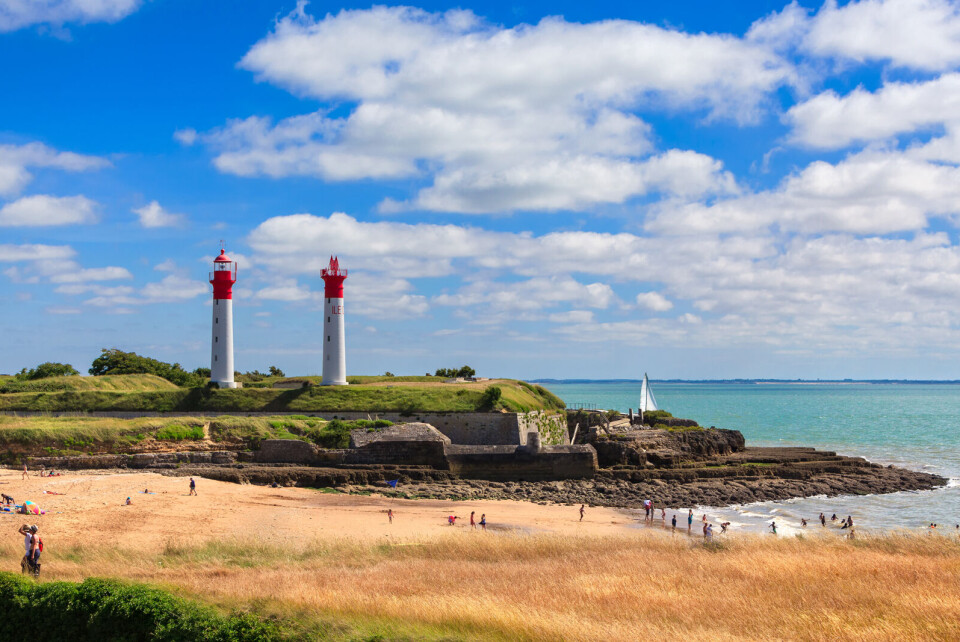-
How France’s new food strategy aims to change the national diet
The plan outlines new goals for meat consumption
-
Why supermarkets are urging shoppers to buy French leeks
Try our French classic leek vinaigrette recipe
-
More communes in France distribute Asian hornet traps
Residents are increasingly receiving help, with now the best time to capture the queens
Green news France: Bins removed in tourist spot, tree thieves arrested
Litter bins replaced with flower boxes on the island of Aix off the Charente-Maritime, food waste transformed into energy and more

Young sailor sets up eco association
A 16-year-old sailor and hiker from La Rochelle has set up a charitable association to help teenagers fund their adventures on water, land or air.
Léo Rousse founded the association Team 298, which invites applications from adventurous teens keen find sponsors, and then puts them in touch.
A passionate ecologist, the student embarked upon his own expedition with classmates in April, visiting – Svalbard, the Norwegian archipelago located in the Arctic Ocean – to study the effects of climate change.
“Our mission was also to come back with a young perspective and perhaps a different vision from the adults so that we could speak out and say what we really think. A young person is perhaps more innocent, will undoubtedly see things differently and also be more creative in the solutions, even if they are not necessarily feasible.”
Bin there? Not on Aix
In a move that shows faith in tourists’ ecological commitment (and perhaps one eye on budgets), authorities on the much-visited island of Aix off the Charente-Maritime coast have done away with litter bins, inviting visitors to take their rubbish away with them. Flower boxes have taken their place.
“Before, we had very large rubbish bins but as soon as they were full, the waste piled up. Visually it was no longer bearable and it smelled very bad,” said the island’s mayor, Patrick Denaud Mayor.
Every summer, several hundred thousand tourists visit the idyllic island in the Atlantic Ocean. In 2020, 174 tonnes of waste were collected between June and September.
Call for Vosges visitor restrictions
A nature association in the Vosges massif has called for a limit on visitor numbers, which have soared during the pandemic as locals seek to enjoy the countryside. Alsace Nature has asked authorities to regulate traffic of vehicles in the passes.
“The massif of the Vosges is not an amusement park”, spokesman Maurice Wintz told France Bleu Alsace. “There are motorcyclists who make too much noise, there are 38-tonne trucks that have no business being here, and there are a lot of cars on weekends. We have to think about more regulation.”
Tree thieves face prison and fine
A man has been arrested in Ariège accused of the illegal cutting of several hundred trees. Along with several owners of the Spanish business he works for, he is awaiting trial in December and faces five years in prison and a €45,000 fine.
In March, Spanish lumberjacks chopped down hundreds of trees, among them hundred-year-old oaks, in the department’s Perles-et-Castelet forest. “They were caught red-handed stealing, we are missing 35 hundred-year-old oaks on our plot,” said one of the theft victims.
Food waste transformed into energy
France’s environment-focused Grenelle Law (Loi Grenelle), the second element of which came into effect in 2010, has led to many new recycling-based businesses and charities emerging over the years, each looking to make the most of waste.
Food recycling is one such new channel, with any restaurant that exceeds the threshold of ten tonnes of bio-waste per year obliged to sort and recycle it.
Paris firm Moulinot Compost & Biogaz collects leftovers from Paris restaurants and even the Elysée Palace.
“The material arrives in bags. We then pass it through a machine which will make us a soup. We store it and then pass it through a hygienizer,” president Stéphan Martinez, told franceinfo.
“This soup is transported to a methanization unit. In tanks, bacteria degrade the organic matter. This produces natural gas, which is then sold to Engie.”
Related stories
French environmental activist condemns duck decoy hunting practice
Solar panel installation trend in France is to sell back the surplus
























